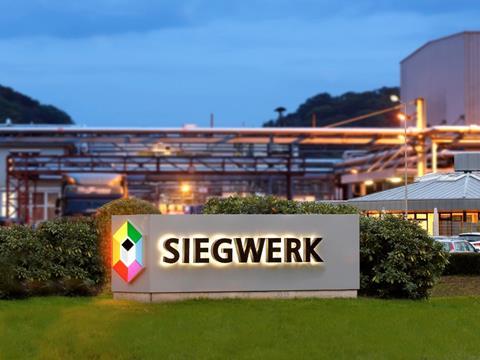
Siegwerk says its new UV offset ink for non-food paper and board applications, SICURA Litho Pack ECO, consists of more than 40% renewable and vegetable-based components.
According to Siegwerk, the new UV offset ink series has a four times higher share of bio-renewable content than average UV inks. The company says that, because there is no standard definition of bio-renewable raw material or a universal consensus on how to calculate bio-renewable content in printing inks, it has decided to build its own definition based on current scientific and political discussions.
Alina Marm, head of global sustainability and circular economy at Siegwerk, explains: “When calculating the bio-renewable content of our inks we focus on the actual share of raw materials with bio-renewable origin that are present in the respective ink formulation, taking all constituents into consideration.
“Thereby, our calculation refers to the sum of all components present in a raw material, also taking into account substances and solvents - except water - that are excluded in the methods commonly used so far, such as ASTM D6866, EN 16640 and NAPIM.”
The company claims that it also differentiates between wet-ink (all ink components) and dried-ink (solid content without solvents and other volatile components that evaporate during drying) content when calculating the bio-renewable content of its ink. This indicates the bio-renewable content of the ink on the final print product, which is relevant for converters and end users.
The series is apparently also free of TMPTA, Benzophenone, and CMR CAT. 1 and CMR Cat. 2 components. Siegwerk adds that the ink is low odour and designed for all kinds of paper and board substrates, and non-food packaging applications.
In addition, the series reportedly shows “excellent” ink performance and high colour strength. The company says that the ink series also offers high dot grain sharpness and flowability, providing a stable ink/water balance even during long runs and good film flexibility for post-processing. The product range contains four colour process inks according to ISO, Pantone colours, base inks, special colours as well as flexo OPV.
Mustafa Guler, vice president BU Sheetfed EMEA at Siegwerk, comments: “With SICURA Litho Pack ECO we deliver once again on our commitment to drive the change towards a Circular Economy by supporting the development of circular packaging with innovative and eco-friendly inks and coatings.
“With 40% bio-renewable content, it is not only comparable to certain conventional oil-based inks, but it also represents a new eco-friendly alternative for UV offset printing. Its formulation is particularly designed for recycling and therefore for not impacting the recyclability of paper and board substrates at all.”
Siegwerk says that it is currently undertaking test runs regarding the series’ deinkability to further determine its potential to improve the recycling of UV printed paper and board packaging. Deinking is a hot washing process that allows layers of ink to be washed off packaging, so the smaller ink residue particles are filtered while the plastic material can be taken out, rinsed, and re-extruded into high-quality recyclate.
The company also acknowledges the need to ensure that the sustainable sourcing of materials and the end-life concept of packaging are accounted for when developing inks with bio-renewable content. Guler adds: “We generally support the ambitions to increase bio-renewable content where possible and in line with the three levers of a Circular Economy – reduce, reuse and recycle.
“Not all raw materials can be replaced by bio-renewable one’s going forward. However, increasing the amount of these materials in our solutions plays a significant role in meeting our goals, and close a gap where there are inevitable material losses and leakage.”
Last year, Siegwerk announced its HorizonNOW sustainability agenda, which includes the pledge to ensure that 75% of its products and services sold enable the use of reusable, renewable, or recyclable packaging by 2025.

















No comments yet